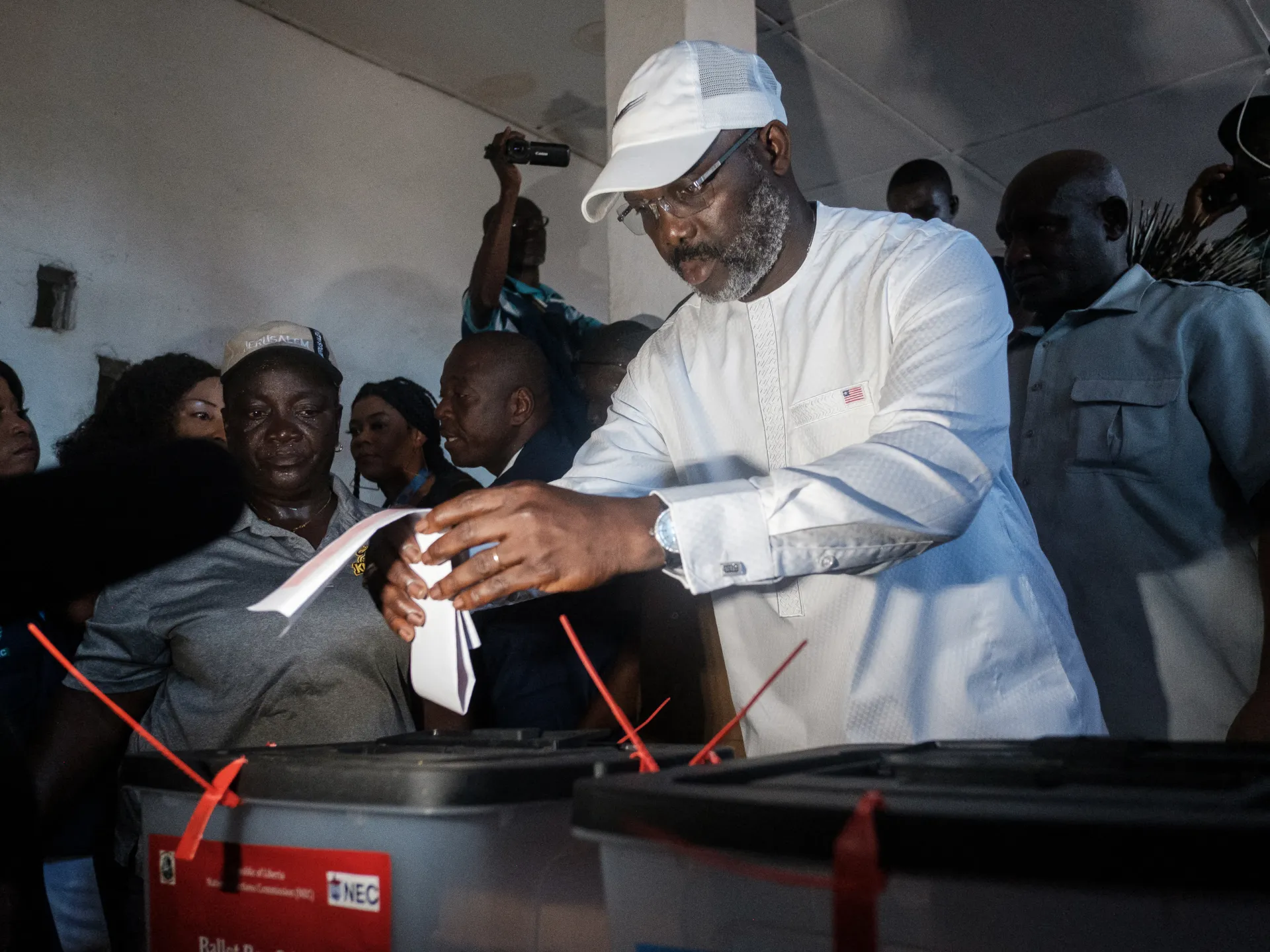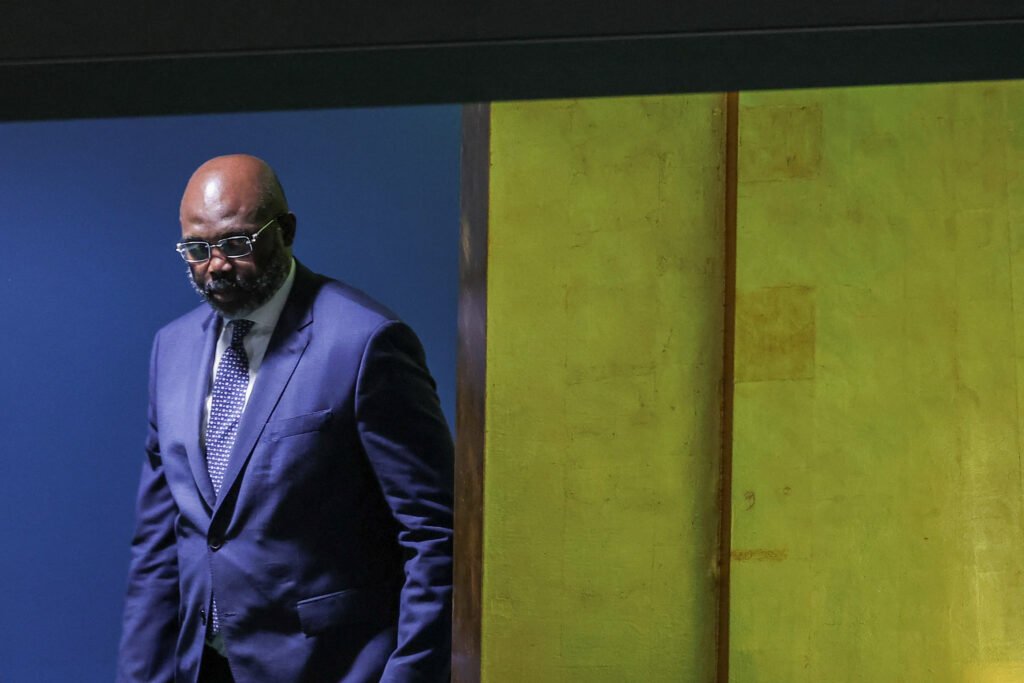General News
Liberia’s Future at Stake: George Weah Seeks Re-election Amid Peace Concerns

Liberia, a nation still healing from the wounds of back-to-back civil wars, is at a pivotal moment as it holds general elections, with one key question in the minds of its citizens: should football legend George Weah be granted a second term as president? As the polls closed, and ballots were counted, peace remained a central concern among voters.
Before the polling stations opened in the early morning sunshine in the capital, Monrovia, eager citizens gathered in long queues, ready to cast their votes. Eighteen-year-old Agostina Momo, a first-time voter, expressed her hope for a peaceful and prosperous Liberia, stating, “I vote for the good of my country. I expect peace and development.”
President George Weah, a former international football star, cast his ballot in the Paynesville suburb of Monrovia. Confident in his work and the trust of the people, he expressed his hope for victory in the first round. Weah entered politics in 2017 with promises of job creation and investment in education.
However, critics argue that he has fallen short of fulfilling these pledges and has yet to establish a war crimes tribunal, despite calls from international and domestic quarters.
The elections have been marked by a commitment from major political parties to ensure a peaceful process. This commitment is essential for a nation that still carries the scars of past violence, with three people losing their lives in clashes between rival supporters last month and recent scuffles during Weah’s campaign rally.
This election represents the first to be held in Liberia since the United Nations concluded its peacekeeping mission in 2018. The UN mission was initiated after the nation suffered through two devastating civil wars from 1989 to 2003, resulting in over 250,000 casualties.
President Weah, 57, remains the favorite among 19 competitors in the race for the presidency, but a second-round runoff in early November is possible if no candidate secures an absolute majority in the first round.
Observers from the European Union, the African Union, the West African bloc ECOWAS, and the United States are closely monitoring the situation in a region recently affected by a series of coups.













![JUST IN: Bibiani-Ahwiaso MCE Dead After A Tragic Accident [VIDEO]](https://enewsghana.com/wp-content/uploads/2022/07/FotoJet-1-5-80x80.jpg)
!["I Am One Of The Black Stars" - Inaki Williams Says As he announces Nationality Switch [WATCH]](https://enewsghana.com/wp-content/uploads/2022/07/Imaki-80x80.jpg)